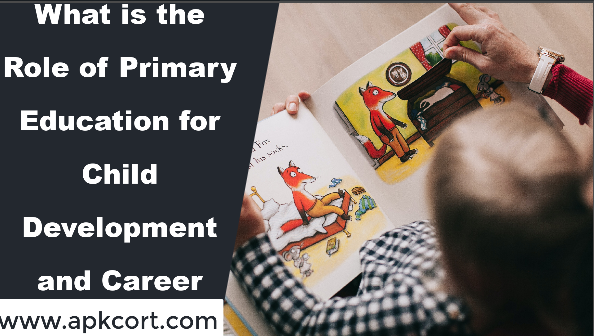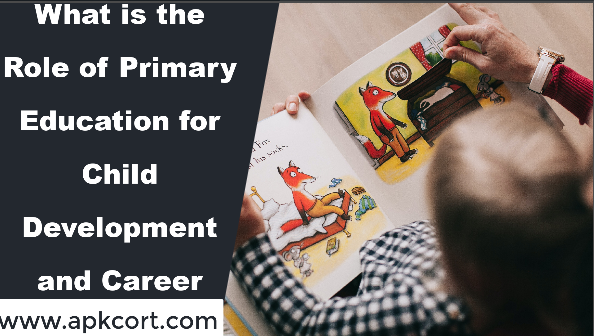This is the best article for you to discuss the Role of Primary Education in Child Development and Career. Every child is different and will have different needs as they grow up. In order to help them achieve their full potential, it’s important for parents, teachers, and students to know about the role of primary education in child behavior and career.

The Importance of Primary Education
Primary education plays an important role in shaping a child’s behavior and future career. It helps them develop important skills and knowledge that they will need in order to be successful in life. Additionally, primary education provides children with a solid foundation on which they can build the rest of their lives.
Relevance of Primary Education
It is said that primary education is the building block of a child’s future behavior and career. It is during these formative years that a child’s personality is developed and their basic skills are honed. While it is important for children to receive a well-rounded education, primary school is especially crucial in laying the foundations for a successful future.
Primary school also provides children with an opportunity to explore their interests and talents. By participating in extracurricular activities, children can discover their passions and begin to develop the skills they will need to pursue their chosen career paths.
The role of primary education in child development is clear: it lays the foundation for a successful future. By providing children with the academic, social and emotional skills they need to succeed, primary school sets them on the path to a bright future.
The Role of Primary Education in Child Development
It is well known that children learn best when they are actively engaged in their own learning. One of the best ways to ensure that your child is actively engaged in their learning is to make sure they are attending a quality primary school. A good primary school will provide your child with the foundation they need to succeed in their future education and career.
One of the most important aspects of primary education is socialization. In order to be successful in their future career, children need to learn how to interact with others. They need to learn how to share, take turns, and cooperate. Primary education is the perfect time for children to learn these essential skills.
In addition to socialization, primary education also helps children develop critical thinking and problem-solving skills. Children who attend a quality primary school will have the opportunity to develop these skills through engaging in hands-on activities and working with their peers.
Finally, primary education helps children develop a love for learning. A love for learning is one of the most important predictors of success in any field. Children who attend a quality primary school will be exposed to a variety of interesting subjects and will have the opportunity to explore their interests.
Impact on Child Behavior and Personality
When it comes to a child’s behavior and personality, primary education plays a vital role. It is during these early years that children develop the social and emotional skills that will shape who they become as adults.
A child’s environment and the relationships they have with adults and other children are crucial in shaping their behavior. Primary education provides children with a safe and supportive space to learn and grow. They are able to explore new things, make mistakes, and try out different ways of doing things without fear of judgment or failure.
Through positive relationships with adults and their peers, children learn how to regulate their emotions, resolve conflict, and cooperate with others. They also develop a sense of self-worth and confidence in their abilities. These skills lay the foundation for a successful future in school and in life.
How can we Support the Needs of our Children?
There are many ways that we can support the needs of our children, but one of the most important is through education. By ensuring that our children receive a quality primary education, we can help them develop the skills and knowledge they need to be successful in life.
One of the key ways that primary education can help children is by teaching them how to manage their behavior. Children who learn how to control their emotions and impulses from a young age are more likely to be successful in school and in their future careers. Additionally, primary education can help children develop important social skills, such as teamwork and communication.
Finally, primary education can also play a role in helping children choose a career path that is right for them. By exposing children to different subject areas and occupational options, we can help them identify their interests and talents. With this information, they can make informed choices about their future, setting themselves up for a lifetime of success.
Conclusion
Primary education plays an important role in shaping a child’s behavior and future career. A good primary education lays the foundation for a successful future, teaching children the basic skills they need to thrive in life. It is crucial that parents ensure their children receive a quality primary education so that they can grow up to be happy and successful adults.



